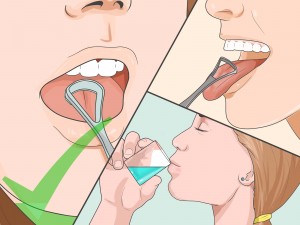1. Halitosis stinks
Bad breath can have a negative impact on a person’s life, relationships, and self-esteem. Most bad breath comes from the bacteria at the back of the tongue (an area that’s difficult to reach with a toothbrush), studies show that crevices of all areas the tongue are cleaned properly using scraper.
- You can get a good taste of food.
If you don’t take clean toxic mucus on the tongue, your taste buds can become blocked. This causes inability to recognize the taste of food. Removing build-up from the surface of tongue will open up its pores and better expose your taste buds allow for greater food taste and help your body digest and assimilate food.
- Increase your immunity.
The tongue is part of the first line of defense. Scraping your tongue prevents toxins from being reabsorbed into your body and boosts overall immune function.
- Dental health is on downfall.
This oral hygiene practice promotes general tooth and gum health and removes bacteria and toxins responsible for periodontal problems, plaque build-up, tooth decay, loss of teeth, gum infections, and gum recession.
- You’d like to improve your digestive health.
Scraping activates saliva production and promotes Agni (the body’s digestive fire) for the digestion.
How to scrape your tongue
The daily routine for maintaining oral health includes scraping tongue in the morning upon rising, and on an empty stomach.
A tongue scraper is a long, thin, flat piece of metal that is bent in a “U” shape.
Stand in front of a mirror, scrape your tongue by holding the two ends of the scraper in both hands and placing the scraper as far back on tongue as possible. Do with firm but gentle pressure; scrape the surface of your tongue in one long stroke. Rinse the scraper and do until your tongue feels clean and is free of coating (usually 5 to 10 times).





